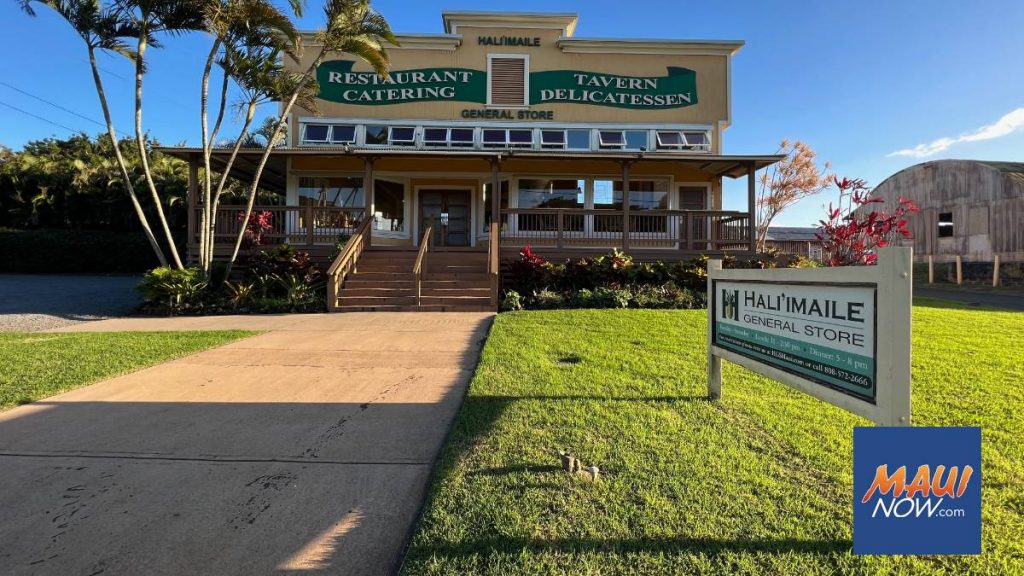Small businesses brace for financial hits amid new vaccine booster rule

Local restaurant owners said they’re bracing for yet another financial hit to their already struggling small businesses in the wake of Maui County’s new booster mandate that rolled out Monday.
High-risk businesses — restaurants, bars and gyms — must now require proof of COVID-19 vaccine boosters from eligible patrons seeking indoor dining or exercising.
Called a “vaccine update,” Maui County’s mandate is the first of its kind in the state.
Also, it is out of alignment with the definition of “fully vaccinated” under the state’s Safe Travels program and the nation’s Centers for Disease Control and Prevention. One is considered “fully vaccinated” two weeks after the second dose in a two-shot Pfizer-BioNTech or Moderna series, or two weeks after a single-dose Johnson & Johnson shot, according to the CDC and the state travel program.
However, Maui’s latest rules mean people must have a booster shot five months after the second shot of Pfizer or Moderna or two months after Johnson & Johnson’s single shot to be considered “fully vaccinated.”
Restaurant owners on Monday said that the rule is riddled with inconsistencies within the state and the nation; it requires extra staffing and enforcement during a time when they are under-staffed; and it ultimately will hinder visitor and resident dollars.
“We are now one of the most restricted states in the nation — and yet we’re open to tourism,” CEO and co-founder of Maui Brewing Co. Garrett Marrero told Maui Now. “We’re almost compounding the issue by letting cruise ships back and packing stores like Costco and Target with people. Yet the government is putting it on restaurants to save the day?”
“The rest of the country is open and people are going to take their money elsewhere,” Marrero added, noting he takes many national and international business trips.
Bev Gannon, chef/owner of Hāliʻimaile General Store, said the rules should be consistent across all sectors, including the visitor and lodging industries. She said restaurant hosts and hostesses should not have to act as police or bouncers, and they often have to face unruly customers who defy rules.
“Once again they have put us in the hot seat,” said Gannon, who also owns Gannon’s in Wailea. “People yell and scream at my hostess, who just wants to seat people. She has to explain why they can’t come in. Then a line starts forming behind them.”
“I just don’t think this was thought through,” she added. “Like a lot of things, it puts us in a very precarious position.”
Mike Marcole, owner of Tante’s Fishmarket Restaurant & Bar in Māʻalaea, said he doesn’t know a single restaurant owner who is happy with the rule. Since the initial vaccination mandate was implemented in September for high-risk businesses, he’s seen a financial loss due to group cancellations and lower traffic. He anticipates this latest rule will worsen the situation.
“This rule needs to be eliminated — period,” Marcole said. “It needs to be taken out or we are going to see a lot of small businesses struggling even more.”
While restaurants, bars and gyms have had to enforce proof of full vaccination for indoor dining and exercising, restaurants and bars are uniquely impacted because they face several regulatory arms, such as the county liquor department and the state Department of Health, owners have said.
Hawaiʻi is the sixth most vaccinated state in the nation, according to the Mayo Clinic. A state DOH press release Monday said that as of Friday, 74.4% of Hawaiʻi’s population has been vaccinated.
Due to a reporting error, the booster percentage ticked up slightly — from 31.4% Friday to 33.1% Monday, with the most significant increase among older age groups, the release said.




_1768613517521.webp)



